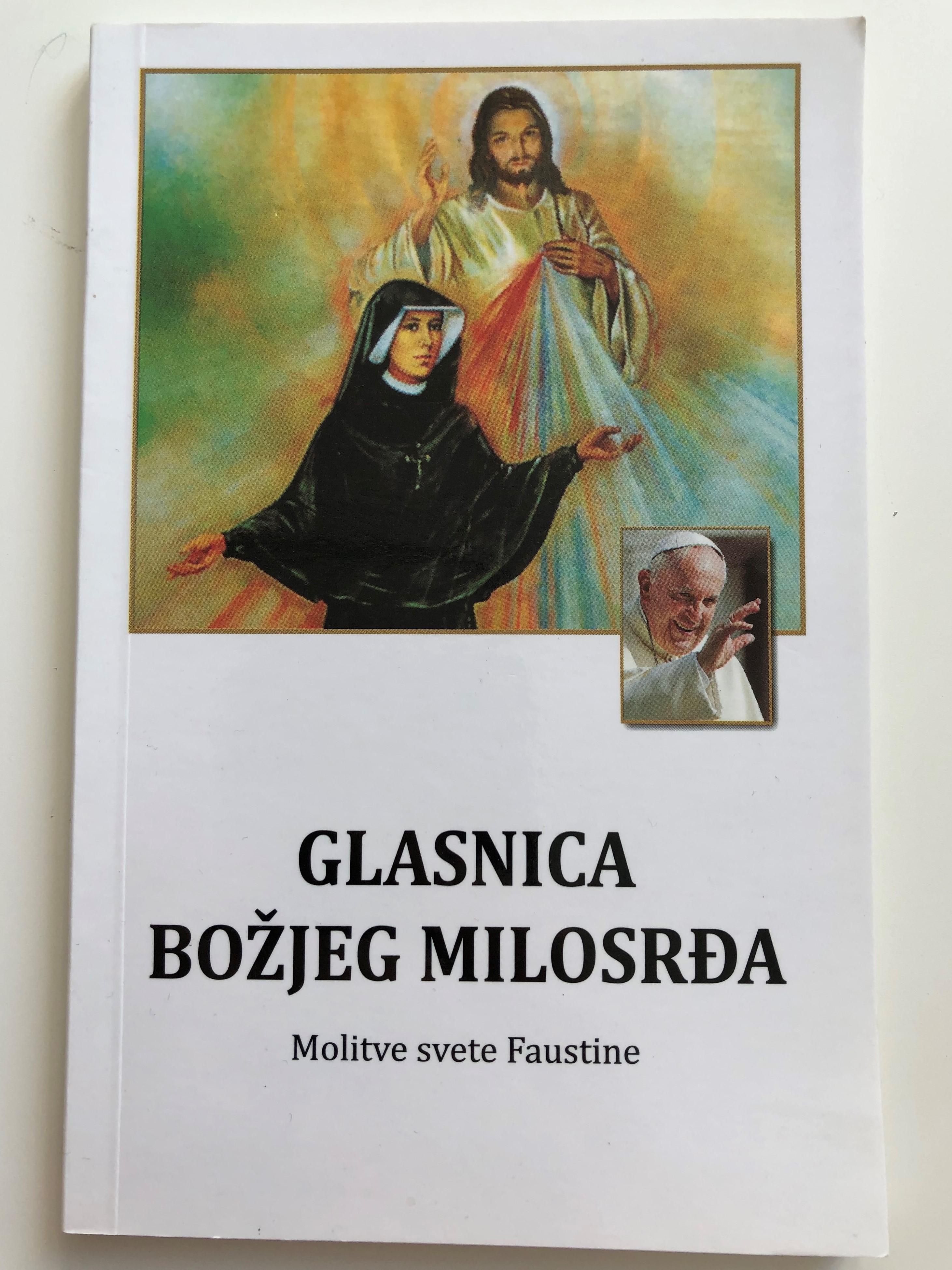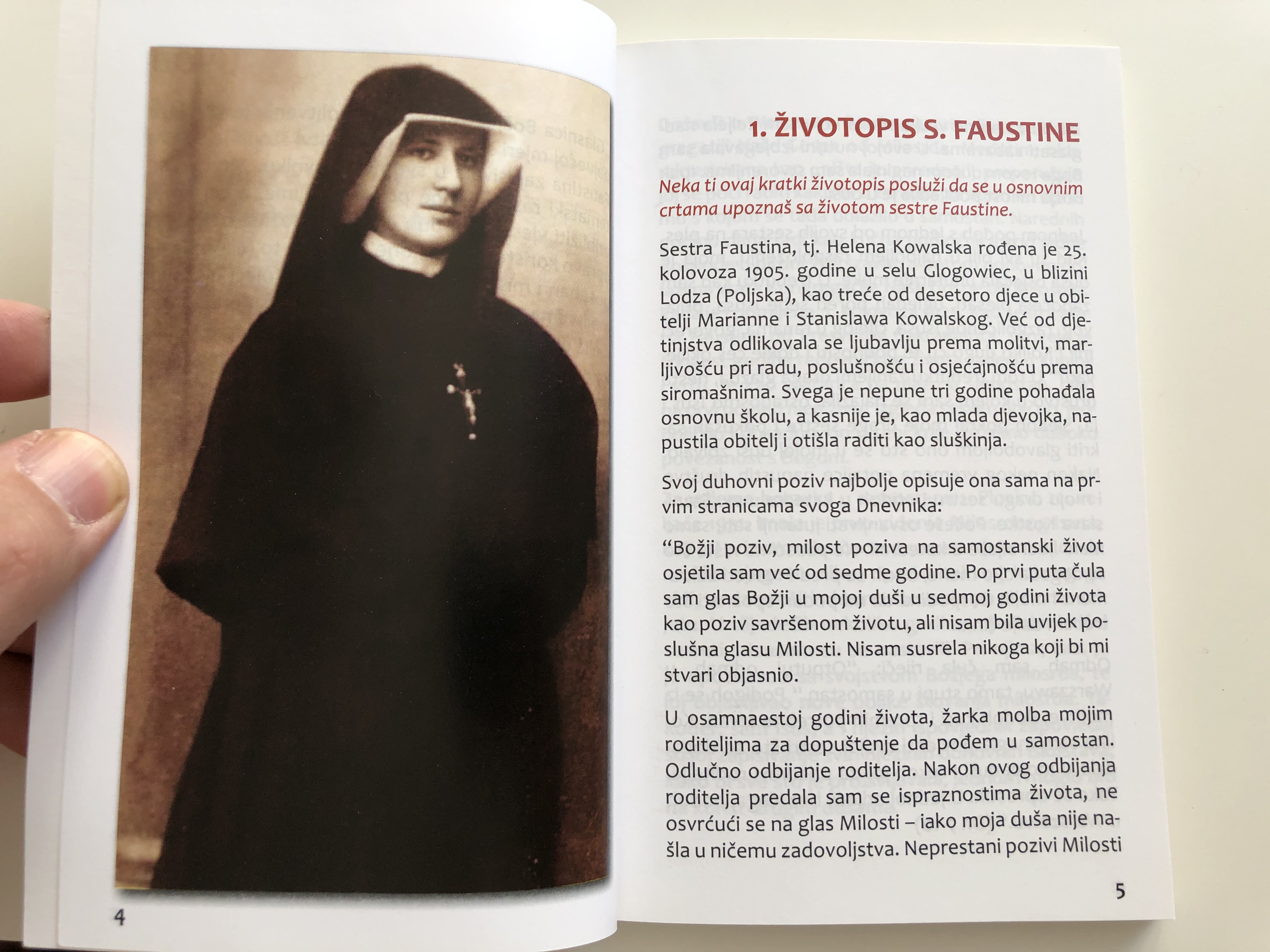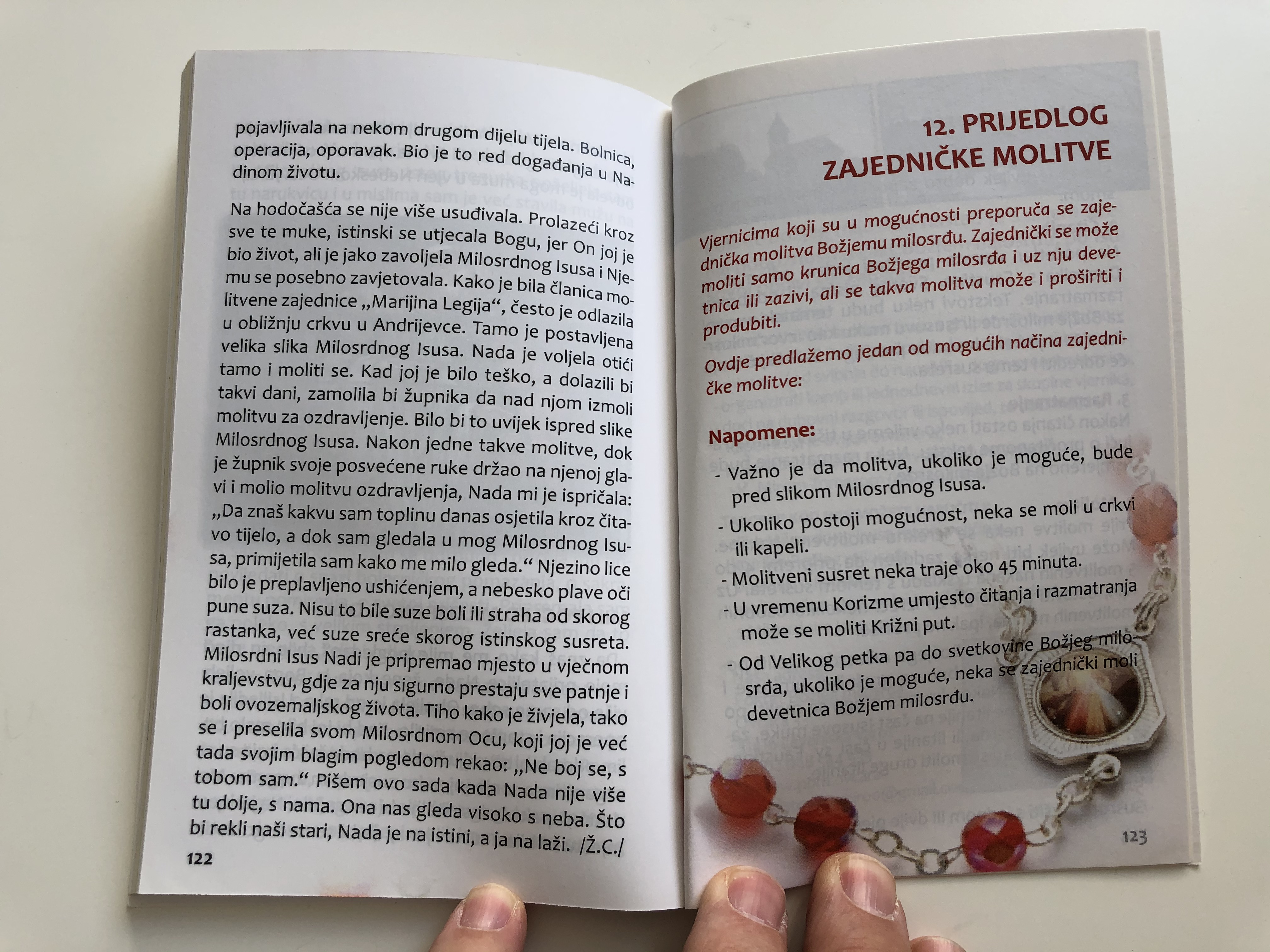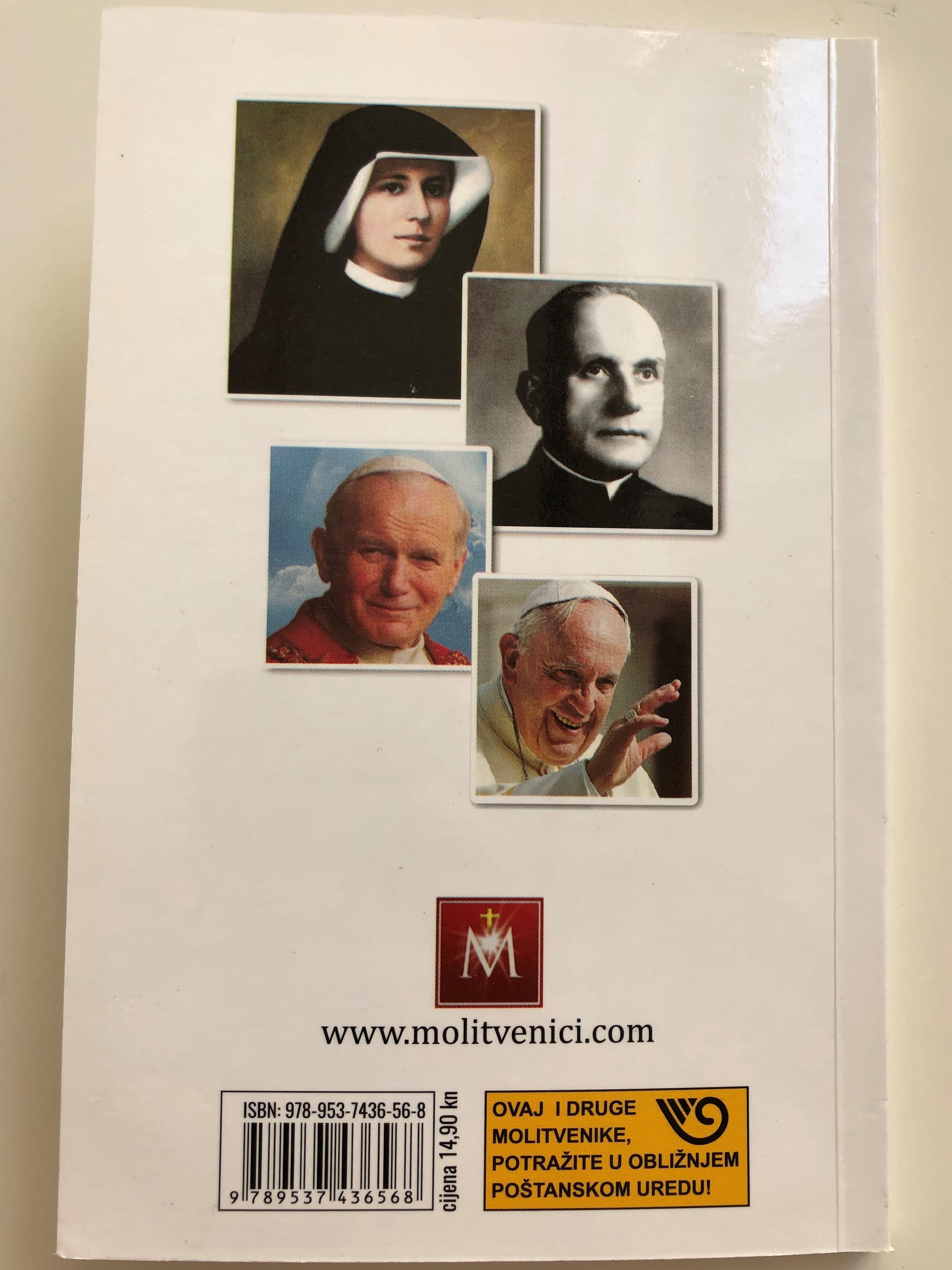Description
Glasnica Božjeg Milosrđa - Molitve svete Faustine / Croatian language Catholic prayer book / Prayers of St. Faustina / Katolički molitvenik / Župa sv. Andrije 2016
PAPERBACK 2016
ISBN: 9789537436568 / 978-9537436568
ISBN-10: 953743656X
PAGES: 128
PUBLISHER: Župa sv. Andrije
LANGUAGE: CROATIAN / HRVATSKI
Croatian Summary:
Sv. MARIJA FAUSTINA KOWALSKA
Rođena je 25. kolovoza 1905. godine u selu Glogowiec u Poljskoj. Na krštenju je dobila ime Helena. Treća je od desetoro djece siromašne, ali pobožne seljačke obitelji. Helenin otac Stanislav je bio tesar i poljoprivrednik. Bio je marljiv i pobožan. Svako jutro i večer molio je časoslov Bl. Djevice Marije. Helenina majka Marija je djecu od malenih nogu učila molitvi i radu. U kući se redovito čitalo iz knjiga duhovnog sadržaja.
English Summary:
Maria Faustyna Kowalska (born Helena Kowalska; 1905–1938), also known as Saint Maria Faustyna Kowalska of the Blessed Sacrament and popularly spelled Faustina, was a Polish Roman Catholic nun and mystic. Her apparitions of Jesus Christ inspired the Roman Catholic devotion to the Divine Mercy and earned her the title of "Secretary of Divine Mercy".
Throughout her life, Kowalska reported having visions of Jesus and conversations with him, of which she wrote in her diary, later published as The Diary of Saint Maria Faustina Kowalska: Divine Mercy in My Soul. Her biography, submitted to the Congregation for the Causes of Saints, quoted some of these conversations with Jesus regarding the Divine Mercy devotion.
At the age of 20 years, she joined a convent in Warsaw, was transferred to Płock, and was later moved to Vilnius where she met her confessor Father Michał Sopoćko, who supported her devotion to the Divine Mercy. Kowalska and Sopoćko directed an artist to paint the first Divine Mercy image, based on Kowalska's vision of Jesus. Sopoćko used the image in celebrating the first Mass on the first Sunday after Easter. Subsequently, Pope John Paul II established the Feast of Divine Mercy on that Sunday of each liturgical year.













































